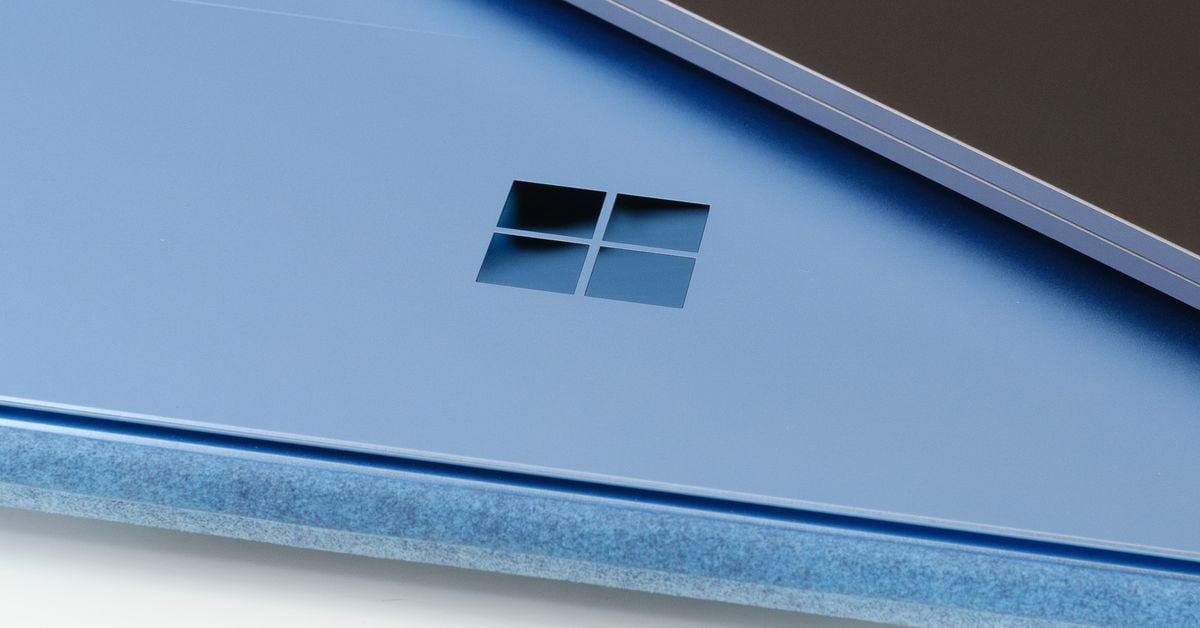It’s good, for privacy and all of course, but I remember here a Dell BIOS upgrade that basically wiped the TPM2.0 and so windows was asking for the recovery bitlocker key at boot. I have them on a encrypted USB key and anyway I can access my MS account from another device to find the key and type it.
But I’m sure a lot of people will basically say “well, fuck, I don’t have the key”, guaranteed.
I always worry the the backup USB drive would be dead.
I guess I’m one minority but kind of like an ability to fetch the key from the web. Doing that securely of course can be tough.
Web. USB. Printout in a safe. On my phone. In Keypass. Etc, etc.
I’m not relying on a single copy.
Where’s your encrypted USB recovery key stored?! Is it encrypted USBs all the way down?
volume encrypted with veracrypt, it asks for a password to be mounted
This one is especially fun on windows 11 home. At least it was some time ago on some machine i worked on. Since home doesn’t have the bitlocker settings fully you cannot disable bitlocker encryption. It would also auto enable sometimes even if you don’t have a microsoft account, which means it doesn’t back the key up anywhere. Not sure it does that anymore, i hope not, but i expect a lot of people to lose their data to this crap in the future.
In either case at least i find that full disk encryption on most machines is just overkill as it only really protects in the scenario the device is stolen and someone tries to pull data off of it that way. But in the vast majority of cases when people get their data stolen its done with malware, which disk encryption does /nothing/ to prevent.
In the scenario in which your computer is forgotten or stolen, it would offer some comfort knowing that the data on the computer is not accessible.
We have a “policy” in our household that everything that has personal data should be encrypted. That is just for cases in which we lose the device or it gets stolen. That makes it a purely financial loss, and not as invasive / uncomfortable.
But on the other hand my household are not average users. So it might not work well for other people.
[…] device encryption will be enabled by default when you first sign in or set up a device with a Microsoft account or work / school account.
For devices with a TPM, this has literally been the case since Windows 10 1803 back in 2018.
But that’s not the case for Windows Home, is it? The FDE setting just takes me to a page to upgrade to Pro. My laptop does have TPM.
It is, Secure boot and the TPM must both be enabled.
If you check Msinfo32 / “System Information” with admin rights, there is a “device encryption” listing that maybhave additional information.
There are rare instances where a device won’t support automatic encryption due to “Un-allowed DMA capable bus/device(s) detected” which requires a registry tweak to work around
Un-allowed DMA capable bus/device(s)
And there it is in msinfo!
Thanks very much. I’ve been using veracrypt for years, it’s good to know that I have another option (especially to simplify things for family members).
This will make people angry in waves as updates break bitlocker and cohorts don’t have their key, a new one each time
It still uses the TPM by default, instead of requireing a passphrase to be typed in on boot to unlock the keys. This still makes it an insecure mess.
https://yewtu.be/watch?v=wTl4vEednkQ
https://github.com/stacksmashing/pico-tpmsniffer
https://github.com/stacksmashing/LPCClocklessAnalyzer
Microsoft NEVER cares about your security. They just do the absolute bare minimum for compliance with stupid standards, and then advertise it as some crazy security improvement. Corporations lie to you all the time. If you want some actual security, you need to start using FOSS software. Most importantly a FOSS, Linux-based OS, and set it up with LUKS passphrase-based encryption.
I think this is a step in the right direction. Everyone can lose a portable device or it can get stolen, so protecting the potentially sensitive data is important.
I think what people are complaining about is not full-disk encryption itself, but the fact that people are not used to being responsible for their cryptographic keys.
I think we should educate people regarding this responsibility. We did it with regular keys we use to unlock our homes.
Are they even saved by default in an MS account? Because if I’d link one, I would expect them to at least prompt me
This is good but they need better guidance to nontechnical users how to backup their keys. Cloud backup now that they are trying to make local accounts illegal I suppose.
Can’t wait to get a million tickets about this. -_-
If you’re getting tickets, I assume you mean at work? What’s a business doing running Home and no Domain? This isn’t an issue on machines joined to a domain.
I work at an MSP, so we have clients who refuse to pay money to have good tech. Plenty of them have no domain, use Home, and just cheap out and then get mad when they have constant issues. We try to tell them to buy better shit, but they don’t wanna hear it. 🤷♀️
Rofl.
The vast majority of small business do run on Home have no clue wtf a domain is. Probably share files via google drive rather than a file server.
deleted by creator
Clownstrike taught them nothing…
Do the average Windows user really need BitLocker device encryption? They don’t. The only users who need BitLocker are business’ and government workers.
Also 99% of Windows users are going to get locked out of their computers.
Everyone needs drive encryption.
And no, 99% of Windows users aren’t going to get locked out.
99% of Windows boxes are business boxes, which already are encrypted (and if they aren’t, that’s some bad IT).
This really only affects Home users, who don’t enable encryption because they don’t know any better. I have no doubt we’ll see quite a few people have issues because they lose their key and can’t recover their data. This is why MS should provide clear directions during setup about storing the key. Instead they’re going to keep it in people’s OneDrive/365 account. Such a bad idea. Now I’ve gotta write documentation for friends and family about what NOT to do during setup.
This is why MS should provide clear directions during setup about storing the key.
Now I’ve gotta write documentation for friends and family about what NOT to do during setup.
Okay. You need to write documentation for your friends and family, but Microsoft have clear directions.
The anti-MS here is annoying. They set up online accounts by default to improve usability and its complaints about privacy. They set up full disk encryption at rest by default to improve privacy and its complaints about usability.
They set up online accounts by default to improve usability
Hahahahaha, you’re kidding, right? Or do you genuinely believe this?
Unless you mean usability for MS tracking and telemetry of home users who lack the expertise of enterprise IT (which uses Windows Pro, and disables/blocks the MS tracking via Group Policy, which isn’t available on Windows Home).
The reason for defaulting to an MS account, and making it practically required (they even hide creating a local account during setup if it has a network connection), is to capture even more user data and telemetry.
Now, defaulting to encryption is a good thing. But, the way to do it is to explain during setup (and have a process for) saving the key to another device immediately after setup - such as a thumb drive. Or even printing it, saving it to a text file, etc, etc.
It should also explain how critical it is, and not to trust saving it to a single device/location.
Agreed. The immature iamsosmart user base is making me strongly consider leaving Lemmy for good. There just aren’t enough actual professionals here for any serious discussion in a technical community. It’s just a bunch of 20-year-olds who think they have the world figured out. And they all downvote based on emotion rather than facts (which I am quite prepared for).
Microsoft accounts, OneDrive, and BitLocker are absolutely great features for the average user providing SSO, cloud storage with ransomware-proof backups, and seamless full-disk encryption.
I love Linux too, but there seems to be no room for nuance on Lemmy. These children are insufferable.
I lost all of my data on a tablet that had Bitlocker installed without my knowledge. Not one time was I ever told that my drive was encrypted or that there was even something called Bitlocker or that I should write down some password or code. Bitlocker activated because of an OS update, and I had no way to unlock it so I had to wipe the drive. I don’t have an MS account, because I have no need to give MS all of my data, so I couldn’t unlock it that way either. And no, I’m not a 20 year old; I’m someone who has used computers since before the internet and have no interest in setting up a corporate account for every watch, shoe, phone, video game, car, etc. I have no interest in giving MS all of my pictures, documents, emails, and browsing history.
Bitlocker activated because of an OS update
This did not happen. You did something to enable it.
I don’t have an MS account, because I have no need to give MS all of my data
If you had one, all of your data would have been safe in OneDrive and easily recoverable. But I’m sure the irony is completely lost on all the anti-MS people here. Nah, it must be Microsoft’s fault you didn’t have backups when you broke your tablet.
Bitlocker activates when you enter an incorrect OS password too many times. I had my tablet set to unlock without a password or pass code, so I never used whatever pass code I set up a year and a half earlier. After one of the OS updates it forced me to log in with a pass code. I tried some pass codes I thought I might have used, thinking that worst case I would have to do a time delay before trying again… because again, MS never told me Bitlocker was installed and never told me it had a password and never told me I should write down whatever password Bitlocker set for itself and never told me that Bitlocker would lock my entire harddrive if I entered an incorrect password too many times.
But go ahead and keep telling me it’s my fault MS added something so intrusive without telling me.
Bitlocker activates when you enter an incorrect OS password too many times.
This is completely false. Please stop spreading misinformation. You clearly have no idea how BitLocker works, nor Secure Boot, BCD, TPM, or PCRs. Or anything really.
Maybe you should stick to an iPad. I’m done replying to this blithering nonsense.
Where is /c/confidentlyincorrect when you need it?
Very first goddamn bullet: “Entering the wrong PIN too many times”
That’s the BitLocker PIN, not the OS PIN. Go away.
Cool, let all the dumb fuck time vampires suffer. I won’t be helping anyone with shit. “Shoulda bought a Mac”
A Mac? Hahahaha, what a fucking joke.
Hey, what version of AutoDesk is on Mac these days? Catia?
Oh, yea, none. There are thousands of other software and $ reasons why “just buy a Mac” is a moronic answer.
Well, you probably can’t anyway. Your (l)users are not going to have their BitLocker keys, and it’s virtually guaranteed they won’t even know what that is. So it’s a total wipe and reinstall for you, my friend.
Exactly, it’s wonderful news!













